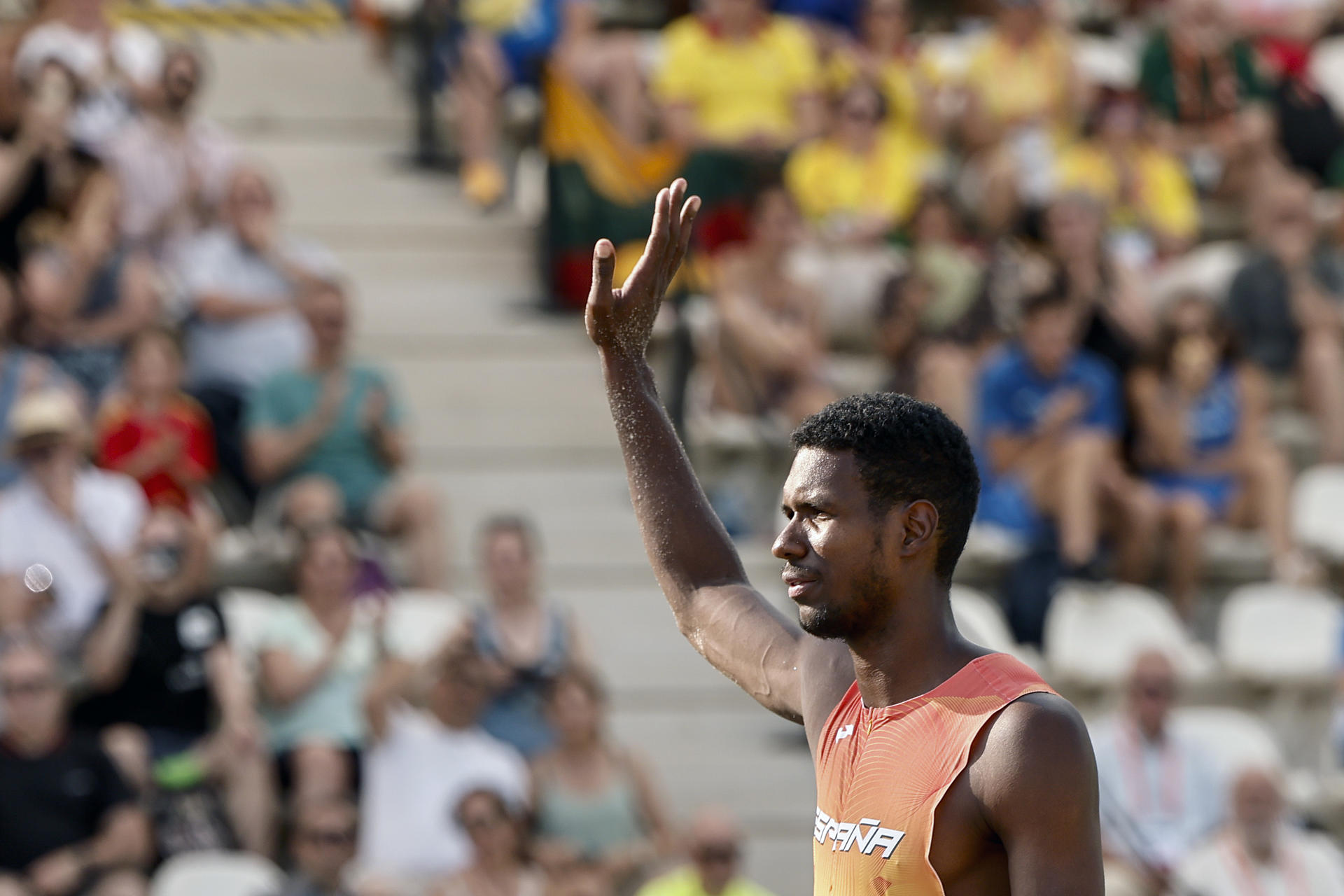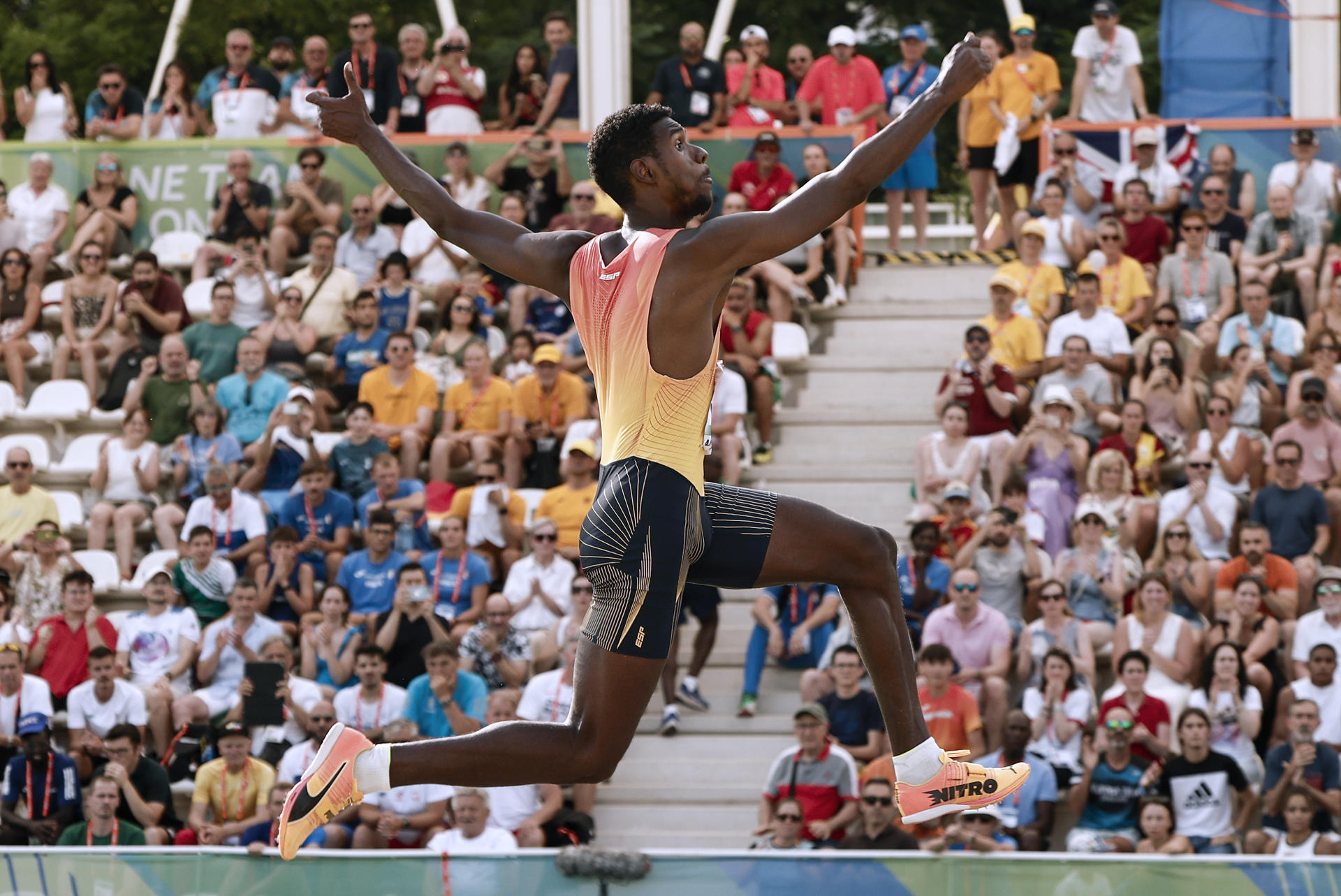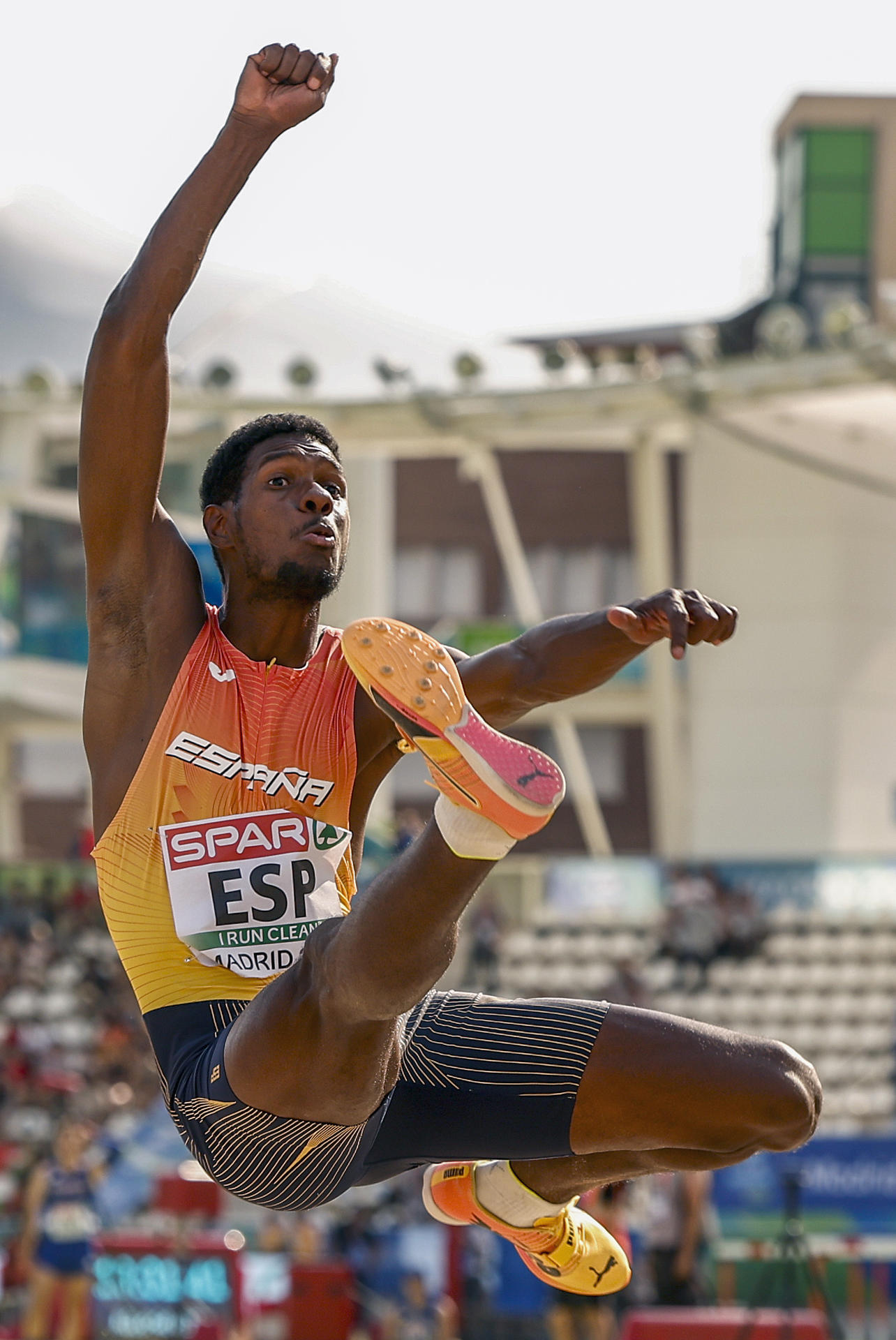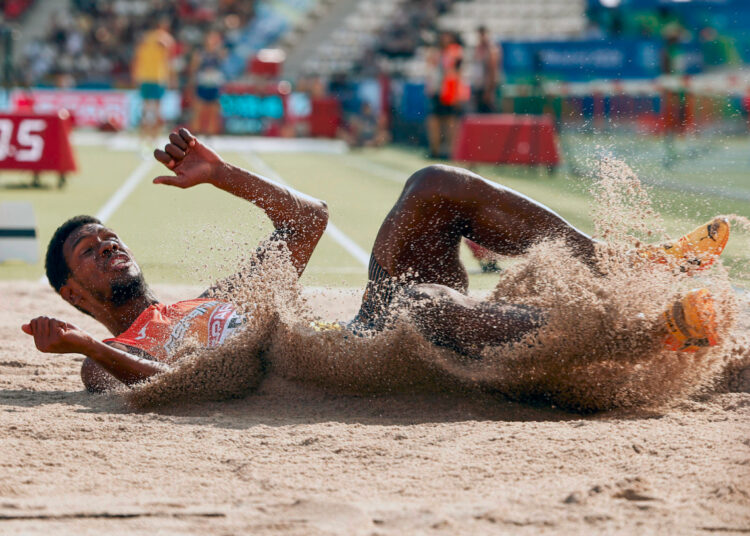It was almost a given that Lester Lescay would fly far. As a child, he was explosive, tall and slim and very fast: the perfect combination for success in jumps. As if that weren’t enough, he also had genetics on his side: his aunt, Mabel Gay, was a world medalist and for several years entered the major global triple jump finals.
It was no surprise then that fate propelled him to stardom as a teenager: at 15, he won the U-18 world championship in the long jump, by 16 he had surpassed the eight-meter barrier and on his 17th birthday (October 15, 2018), he was crowned champion of the Youth Olympic Games in Buenos Aires.

All of this happened in a period of 15 months, between July 2017 and October 2018, a period in which he went from being one of the many young athletes in the Cuban long jump academy to one of the main future long jump referents on the Caribbean island. “It was very fast, I barely had time to process it; I was just jumping, trying to make each competition better than the last,” Lescay recalls in an interview with OnCuba.
His rise coincided with the rise of Juan Miguel Echevarría, who in 2018, at just 19 years old, won the World Indoor Championships in Birmingham and immediately established himself as Cuba’s leading long jumper. “He’s the classic very talented kid who finishes junior level without becoming a big star and when he joins the national team he takes on the world,” says Lester, who had every chance of forming a killer duo with Juan Miguel Echevarría.
However, Juan Miguel took the lead and established himself among the best in the world, while Lescay progressed more slowly, although he stabilized at 8 meters and qualified for the Tokyo Olympics: “We don’t all move at the same pace; some explode before others. Sometimes you lose patience very quickly with young people, but you can’t despair.”
The leap to another dimension
Lester Lescay was born in Santiago de Cuba, a Pinar del Río adopted son and married to a Spaniard. In March 2022, when he finally broke ties with Cuba’s National Institute of Sports (INDER) after a competition in Belgrade, he settled in Spain with his wife.
“I stayed with a super-nice Spanish family who welcomed me as one of their own. I’ve never had a hard time here; but neither did I in Cuba. My mother gave me everything. I wasn’t a child who had a hard time. I simply left Cuba because I didn’t want to spend my youth there, to have more freedom,” he says in Madrid, where fans of the long jump hold him in high regard.

However, at first, Spain didn’t see him as a potential addition to its national team. In fact, despite his records, his talent and his youth record, he had to wait until he was married to obtain Spanish nationality and be able to officially sign his permanent transfer to the European national team after three years without competing for Cuba.
“I wasn’t granted nationality through the sport, as has happened in other cases. The path has been different, but in the end I managed to integrate well. I’ve had a lot of support from the Playas de Castellón club, which I joined almost as soon as I arrived. Their help has been crucial, because when you emigrate you don’t know how you’re going to live. It’s a lot of uncertainty, and they were always there for me,” reveals Lescay, who has already achieved his first successes with that country alongside his coach Luis Felipe Meliz.
“Luis Felipe has always been with me, through the good days, the bad, the triumphs and the defeats. I have a lot to thank him for,” he emphasizes.
This year, both competed at the European Indoor Championships held in Apeldoorn, the Netherlands, and won the bronze medal, just one centimeter behind the gold won by the “electric” Bulgarian Bozhidar Sarâboyukov and tied with star Italian Mattia Furlani, who won silver for achieving a second-best time in his sequence.
“That was my official debut with Spain, unforgettable, both for the medal and for having competed injured, almost unable to run. I had to be infiltrated to jump. The hardest thing was not being able to enjoy the event, but the result is a happy memory.”
Present and future: limitless
Lester Lescay considers himself fortunate. Although he has endured some of the typical bitter experiences of an emigrant, his transition from Cuba to Spain has been easy, both personally and professionally.
“Being with my wife, in a family environment, has made a difference. I was also lucky that Puma signed me to start. Things have flowed and at this point I feel very loved by the people. It’s important to feel the warmth, to feel loved, even on a day when things aren’t going well for you,” says Lescay, just after finishing outside the top eight in the First Division of the European Team Championship held last weekend in Vallehermoso.

“It’s a shame that here in Madrid I couldn’t make the jump the fans were hoping for. It wasn’t a good day, but not because of a lack of legs: it just didn’t work out. The important thing was to bring points to the team. I’m not sad, but I know I could have done more. What couldn’t happen was to leave Spain without points. That’s why, on the third attempt, we took two steps back to ensure at least a valid jump,” explains the Santiago native, who faced the demands of a world competition.
On the one hand, Greek Miltiadis Tentoglou — Juan Miguel Echevarría’s executioner at Tokyo 2020 — dominated with the best mark of the year (8.46 meters). In second and third place were Sweden’s Thobias Montler (multi-European medalist) and Italy’s Mattia Furlani (this season’s world indoor champion and Olympic bronze medalist in Paris).
Saltador cubano estrena nacionalidad española con bronce europeo
After this test, Lester is facing the rest of the season with clear goals:
“On the one hand, there’s the World Championships next September in Japan, where I’ll go all out. There won’t be a team involved: it’ll just be me competing, and if I fail, the damage will be solely on me.
“Furthermore, I want to break my personal record, which is 8.35 meters. I was aiming to achieve that here in Madrid; I know I was in good shape, but after two fouls you have to put those ideas aside and try to secure a third place.
“This year, I think I can break that mark, as long as I stay healthy and do things right, both on and off the field. If I take care of myself, my limits are far from over.”










